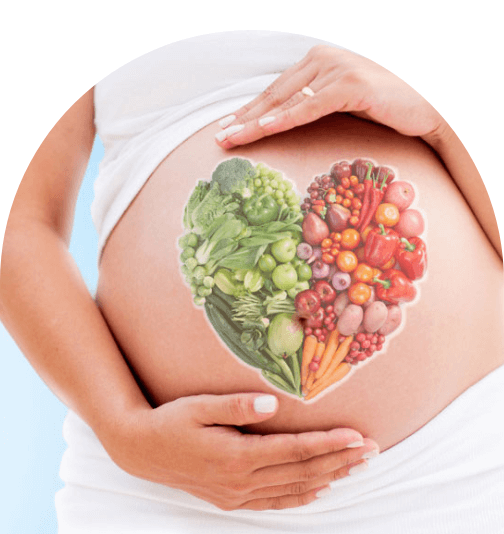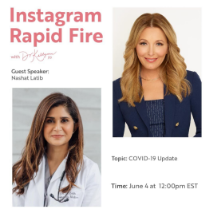Micronutrients
The prenatal nutrition conversation wouldn’t be complete without discussing key micronutrients. A mother’s deficiency of folate, iron, calcium, and vitamin D can affect fetal development and have long-term health consequences for both mother and baby.
Folate
In addition to omega-3s, a developing baby’s brain requires folate, a B vitamin. Folate is also involved in cell division, which occurs at a rapid pace during pregnancy.
Folic acid is the synthetic form of folate found in supplements and fortified foods. The body can absorb folic acid better than folate found in whole foods.
The recommended dietary allowance (RDA) for folate in women of childbearing age is 400 micrograms per day, increasing to 600 micrograms per day during pregnancy. Some studies recommend getting 400 micrograms of folic acid in a prenatal supplement and eating foods rich in folate like leafy greens, peas, beans, and lentils. Click here to get our recommended prenatal supplement.
Iron
Iron is a mineral that makes up hemoglobin, which transports oxygen to body cells. Without proper iron stores before pregnancy, it is unlikely that the mother and baby will meet iron needs during pregnancy.
Unfortunately, iron deficiency is a widespread problem, affecting over 30% of pregnant women in developed countries and up to 50% of pregnant women worldwide.
Iron deficiency can have significant health consequences. For mothers, iron deficiency during pregnancy is associated with decreased immune function and a future increased risk of heart disease. For babies, iron deficiency is associated with an increased risk for preterm birth, low birth weight, and abnormal development and cognitive function.
In the prenatal period, the RDA for iron increases by 50% from 18 mg to 27 mg per day. Choose a variety of foods with iron such as fish, meat, dark leafy greens, beans, lentils, and fortified foods. Iron in animal foods is more easily absorbed than iron in plant foods; to improve iron absorption in plant foods, add sources of vitamin C like citrus, peppers, broccoli, and cauliflower.
We always include a lab test for iron when we onboard new clients. Click here to learn more about the lab tests we recommend.
Calcium and Vitamin D
Calcium supports bone, teeth, heart, nervous system, and muscle development in your baby.
Mothers not consuming enough calcium are at higher risk for hypertension and osteopenia, a weakening of the bones, as well as muscle conditions. Their babies may be at a higher risk for delayed growth, low birth weight, and poor bone mineralization.
For pregnant women, the RDA for calcium is between 1,000 and 1,300 mg daily, depending on age. The need for calcium is paramount during the third trimester when bone mineralization occurs at the most rapid pace.
Calcium is found in dairy products, plant foods including leafy green vegetables and nuts, and fortified foods such as some soy milks. Diet alone can usually meet increased calcium needs, though supplementation may be recommended for some.
The body needs vitamin D to absorb calcium. For women of childbearing age and pregnant women, the RDA for vitamin D is 15 micrograms per day. You can get vitamin D from sunlight, foods, and supplements. Fatty fish such as salmon and fortified products are the best sources of vitamin D. However, it can be difficult to reach needs through sunlight and food alone. Talk to your practitioner about whether a vitamin D supplement is right for you.
Our Recommendation
One way to get a great variety of micronutrients is to eat the rainbow. Meaning, don’t eat the same veggies and fruits day in and day out. Make sure you get veggies and fruits that come in a variety of colors in your diet.








